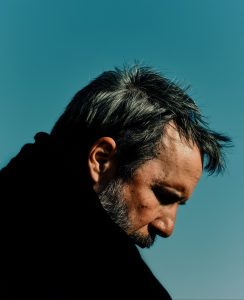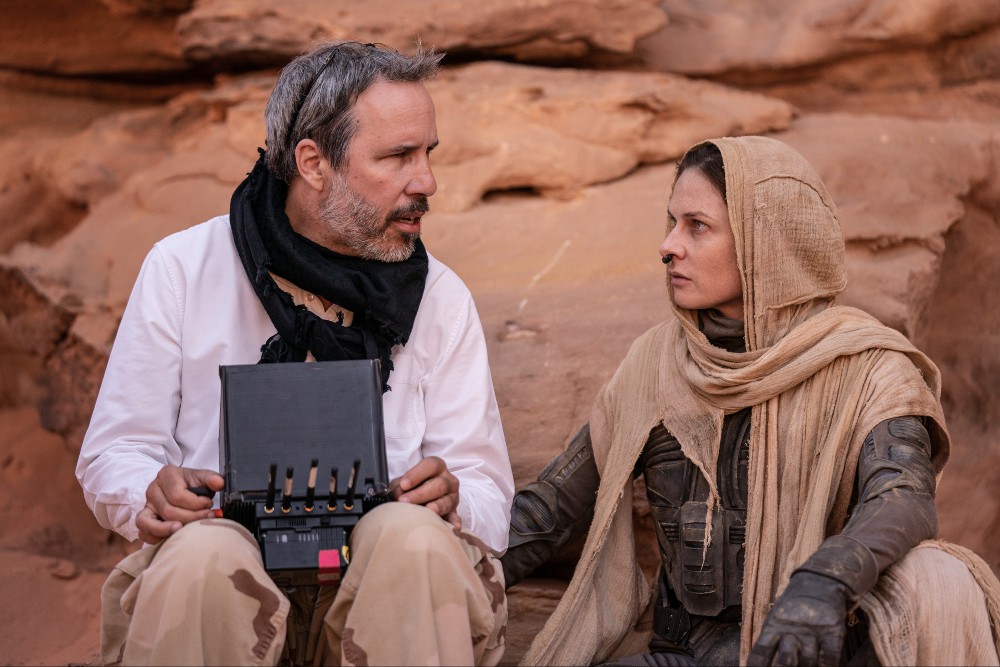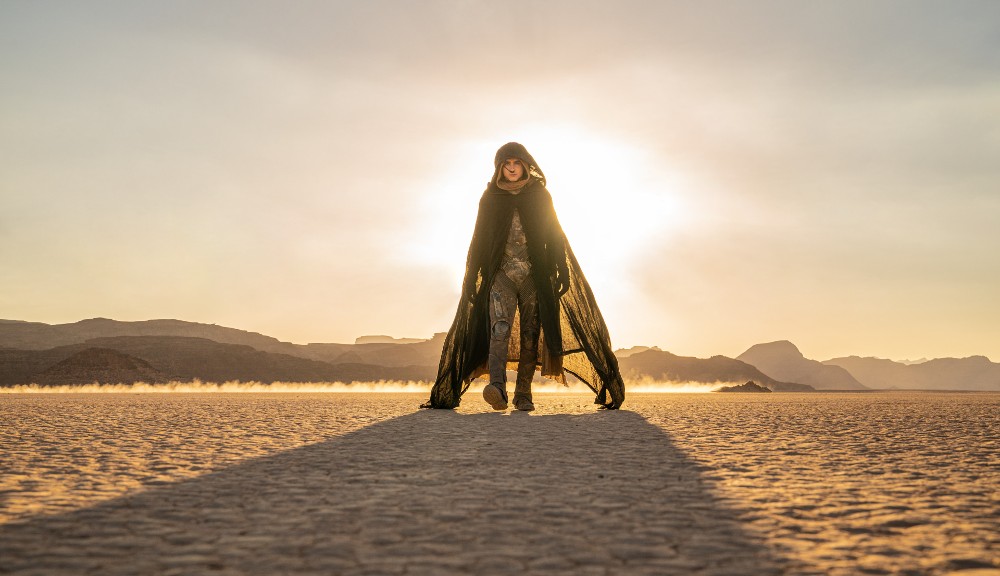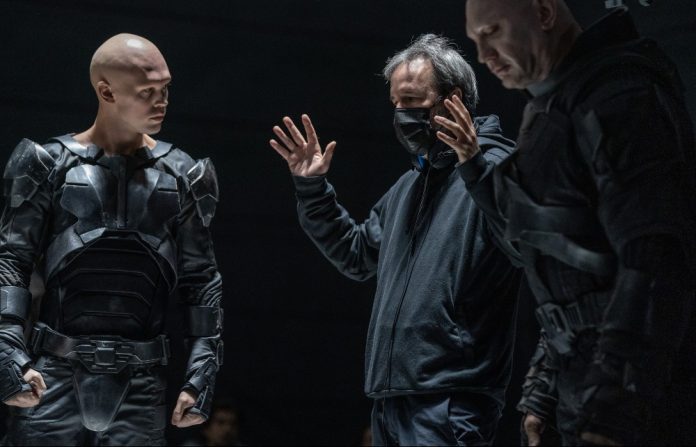French-Canadian director Denis Villeneuve has already established himself as one of the top filmmakers working with critically-acclaimed films like Incendies, Arrival, Sicario, Prisoners, and the sci-fi sequel, Blade Runner 2049. His 2021 adaptation of Frank Herbert’s 1965 sci-fi classic, Dune, elevated Villeneuve to another level, receiving six Oscars two years ago for some of his talented crafts people
After two and a half years, Villeneuve’s Dune: Part Two returns the viewer to the planet of Arrakis where Paul Atreides (Timothée Chalamet) and his mother Lady Jessica (Rebecca Ferguson) have embedded themselves with the Fremen, including Zendaya’s Chani and the group’s leader Stilgar (Javier Bardem). Things haven’t settled down, as the Harkonnens, led by the Baron (Stellan Skarsgård) and his vicious nephews Rabban (Dave Bautista) and Feyd-Rautha (Austin Butler), have been committed to confronting the Fremen who have held the mining of the profitable drug “Spice” captive from outsiders.
There’s a good reason why Part Two has been almost universally praised ahead of its release on Friday, March 1, after being delayed by the actors strikes last Fall. It’s very likely to get Villeneuve his second Oscar nomination as a director. (Villeneuve previously received a directing Oscar nod for Arrival, but was only nominated for co-writing and co-producing the first Dune.)
Above the Line spoke with Monsieur Villeneuve over Zoom a few weeks back, and let’s just say that fans of his dual Dune movies may want to relish those first two chapters, since it might be a while before he starts developing Dune: Messiah, a proposed third movie adapting Herbert’s next book.

Above the Line: Dune: Part Two is absolutely fantastic. It’s a quite an achievement, just to get this done with everything going on in the world. I imagine you must have read the book when you were younger, so did you always envision how might see it over the years? And was there a point a few years back where you decided that you and the technology were both ready to make the movie you saw?
Denis Villeneuve: It’s true that I did read the book when I was quite young, and what is beautiful is that at that age, when you fall in love with a book, there’s all those images, all those dreams that are popping in your mind. I tried like an archaeologist to remove the dust from those ideas, those images and bring them back to life. Making an adaptation, there are a lot of choices, there are a lot of nuances, there are a lot of things that you have to change the nature of the original material, the book. So it’s an adaptation that was made with my sensibility. If it had been made by another director, it would be a complete different movie. There are elements that are very close to the images that came to my mind when I was a kid, but there are other elements that are, frankly, absolutely new. A lot of them, because I grew up, the world change. I see the world differently. Now that I read the book, I see different aspects of it that are more interesting to me now. It’s a blend, I will say.
When I landed in Hollywood, people were asking me what will be my dream project? And I kept saying Dune. Why? Because it’s a book that’s endured the test of time. I fell in love, and that spark is still there. I love what the book is about, and I felt it was even more relevant today, but I waited for the moment when I would feel that as a director that I will be ready, technically, to attack such…. The book is a masterpiece, and it’s a big responsibility, and I wanted to make sure that I had all the technical knowledge in order to be able to bring it to the screen.
ATL: Herbert’s book has a lot of stuff about colonialism, faith, spiritualism, and indigenous people like the Fremen, but Part Two also touches upon stuff inspired by what’s happened in the Middle East since Herbert wrote the first book in 1965. When you and Jon Spaihts first sat down to figure out the story beats, how did you decide how much of those ideas you wanted to expand upon?
Villeneuve: The books are very dense. It’s very beautiful how Frank Herbert inspired different planets from different areas of Earth. Each family or tribe is inspired by hybrids of our culture here, and I tried to keep that vivid in the movie, the richness of each culture. It’s an adaptation that was made for the 21st century definitely. Sadly, I will say that the book became with time more relevant than it used to be. Sadly, the world didn’t become a better place after 50 years.
I will say this. If you listen to Frank Herbert in 1965, it’s quite frightening how he would say things about profit and the deserts, warning everybody about climate change, and the danger of blending politics and religion together, the danger of charismatic figures. There were a lot of topics he talked about at the time, where nobody listened to him and today, it’s all there.

ATL: You went into this knowing that it was going to be at least two parts, maybe three, but had you literally finished the first part when COVID hit and then took a break before starting Part 2 or were you basically just working on both movies this whole time?
Villeneuve: The idea was always to do the first book in two movies, and the idea was always to do one, see how it goes and then do the second one. We didn’t take any breaks between both, because by the time we finished the first one and it was released, I was already in pre-production for the second one. The screenplay of the second one was mostly written, and it was already greenlit. When the first movie came out, we were almost landing into pre-production, so there was no downtime. There was no rest. I stayed with both feet on Arrakis all this time.
ATL: You already had Timothée and Zendaya, two of the hottest young actors working in the first movie, but then you added Florence Pugh and Austin Butler, so you literally have every single hot young actor under 30 in your movie. Can you talk about casting those roles for Part 2?
Villeneuve: I had the responsibility to bring to the screen very iconic characters that are bigger than life, that require a lot of charisma. The movie will, of course, be more contained and more economic than the book where you can have access to the thoughts of the character, you can go deeper into the relationships, you can know more about the characters. It’s a work of precision, so I needed people that have all the potential to bring those characters to life. I chose those actors for those reasons, then it happened that they are also becoming movie stars thanks to the God of cinema. But I have no control over that. It’s not me who decides that. When I picked Timothée, he was a promising young actor, one of the best of his generation — and same for Zendaya. Now, through the years as we’re making the movies, they’re becoming bigger and bigger stars. It’s great for me, but I cannot plan that.
ATL: One of the things I thought was terrific about both chapters was the color palette you use to tell the story. It was quite distinctive in the first movie, but I think you upped that game with Part 2 where the disparity between the colors of different sections is very striking. How early on are you working with your department heads to create that look and color palette? Is that something Greig Fraser is shooting to match that color, or is there stuff still done in post and DI to make the film look like that?
Villeneuve: That palette is decided in the screenplay. Most of it, if not all of it, is done on-camera. There are very few shots… I love to make decisions as we are shooting. I don’t like to change the nature of images in the DI. I love to commit. It was written in the screenplay that the movie was opening on an eclipse and that, for many reasons, will change the nature of the light. All those decisions are made in the screenplay and pre-production, and there is no way back, because we shoot things the way they are. I always warn the studio and other producers, “Listen, guys. I’m going there. If you don’t like it, tell me now, because after that, it’s too late. All Giedi Prime was shot in infrared cameras. I cannot suddenly bring back the colors. They don’t exist.” I love to commit like that. It’s the only way I love to work, so it’s those decisions are made way up river.

ATL: When you’re doing so much on location, especially for Part Two, where there are so many exteriors, how is Greig able to control the light, so that he can get the light he wants? How is it working in that sort of environment to get the look you both want?
Villeneuve: When you shoot outside like that, you can, of course, some people will shoot very spontaneously. But if you work like Greig Fraser, who wants perfection, it means that each shot will be designed according to a certain time of the day. Because the sets that we found were never perfect, you could say, “Okay, this part is fantastic for this angle, but it doesn’t work for this angle.” It means that a lot of scenes have been shot in different places, at different times of the day, in order to create a continuity, and always to find the perfect light for each shot. It was a puzzle, and Greig was going on each location, and recording each location in 3D in order to plan the direction of sunlight. He knew that on November 3, where the sun will be, according to this rock, we will need to put the camera at this height in order to achieve the shot I wanted to do. It was a very precise schedule that was done to create that puzzle in order to always get the perfect shot, and I absolutely adore this way of working. It’s a bit mind-bending, it’s a bit disorienting, but once you go in the editing room, it’s so rewarding, because there’s no compromise.
ATL: All the work really shows on the screen. Now you have done five or six years in Dune world, and you have an opportunity to do another movie, which I assume you’ll want to do. Do want to get out of that world for a bit, and do something else for a while? What are your next plans?
Villeneuve: I will say that all my next projects are at the development stages. Thank God, because I’m a bit tired. There were no breaks between Part One and Part Two – it was non-stop working. I’m blessed as a director, but still, I’m tired. To have a little time for writing right now will be a blessing, and in a perfect world, I think it would be healthy to do something else, and then go back to Arrakis, just to refresh the mind, to recreate the desire to go back in the desert. I think it would be healthy for everybody, including and mostly for me [chuckles] to do something different and then go back to Arrakis.
ATL: Do you check in on The Sisterhood series being produced at Max at all, or is that something completely separate?
Villeneuve: It’s absolutely separate. I’m not involved at all in this series. It’s a different project made by different people, and I’m not involved with it at all.
Dune: Part Two will open nationwide on Friday, March 1. You can read two reviews of Dune: Part Two here and here.



